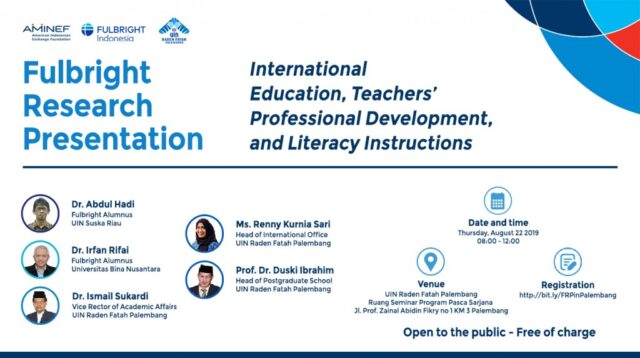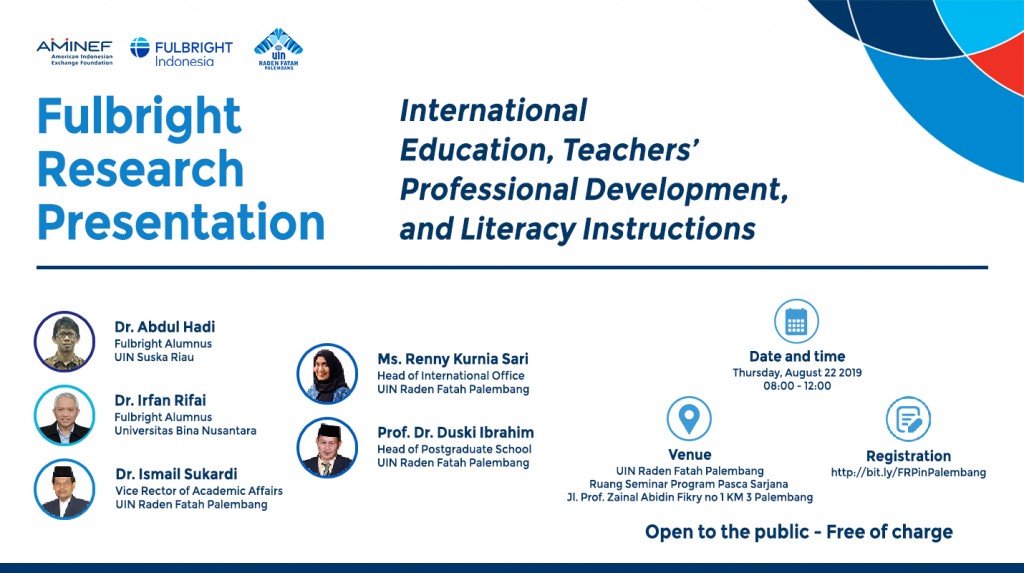From Curiosity to Research Questions (Part 1)
By Irfan Rifai
“The public have an insatiable curiosity to know everything, except what is worth knowing.”
― Oscar Wilde, The Soul of Man Under Socialism, and Selected Critical Prose
In popular literature, curiosity is a feeling eminently branded or attached to cat (as in curiosity killed the cat?) and young children. With their timid and limited senses, their curiosity often lead them to danger and undesirable consequences. I have no knowledge nor interest to explore the origin or the impacts of curiosity on cats or animals, but I can be reasonably sure that for human, the desire of wanting to know stays with them for as long as they live. It is characteristically human and there is no quencher to such desire. The more we know, the more curious we become, then, the more questions we ask.
People’s positions in society also determine the kinds of questions they ask and the methods of inquiries they use to answer them. A 10 year old child would wonder about different things from, let’s say, a 40 year old doctoral student. The methods the 10 year old boy uses to answer his questions would also be different from those of the doctoral student. For the doctoral student, doing research might be the way for him to answer his genuine inquiries about the world that come from personal and professional lives , which often blend, and turn into problems that are uniquely his. Later on, as he dives into the sea of past research articles written by established academics, he might learn that his questions may not be unique after all.
 Irfan shared his researching story in a Fulbright-iniatiated event.
Irfan shared his researching story in a Fulbright-iniatiated event.
Finding a gap in literature is an important part of pre and post research activity that doctoral students must perform to learn. Contribution to the field has to be stated clearly early in the proposal and later in their publications. In their articles, Enciso, P. et.al., (2011) and Adadan, E., Irving, K. E., & Trundle, K. C. (2009) demonstrated how they found gaps in literature and filled the gap to show their contributions . For a doctoral student, finding a gap in the literacy is not an easy thing to do. The literature might inform him whether the questions have been answered or the project he is working on is not worth pursuing. And then, when he is finally quite settled with his topic and questions that he develops, he finds out that somebody else has taken a few steps forward by publishing an academic work that is 95% similar to the project that he currently does.
References:
Adadan, E., Irving, K. E., & Trundle, K. C. (2009). Impacts of Multi‐representational Instruction
on High School Students’ Conceptual Understandings of the Particulate Nature of Matter.
International Journal of Science Education,31(13), 1743-1775.
doi:10.1080/09500690802178628
Agee, J. (2009). Developing qualitative research questions: A reflective process. International
Journal of Qualitative Studies in Education,22(4), 431-447. doi:10.1080/09518390902736512
Enciso, P., Cushman, C., Edmiston, B., Post, R., & Berring, D. (2011). ‘Is that what you really
want?’: A case study of intracultural ensemble-building within the paradoxes of
‘urbanicity’.Research in Drama Education: The Journal of Applied Theatre and
Performance,16(2), 215-233. doi:10.1080/13569783.2011.566991

Comments :